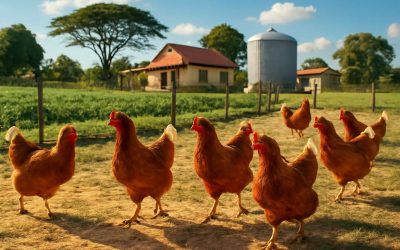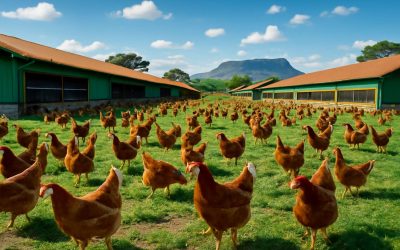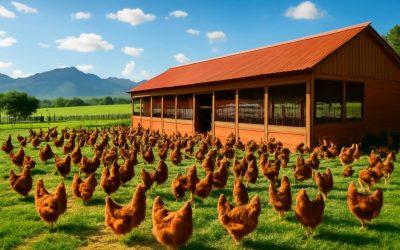
Broiler chicken farming is a highly industrialized process for rearing meat birds to produce food. It consists of two major sectors: (1) rearing chickens intended for consumption and (2) raising parent stock to breed the meat birds for commercial production.
Unlike free-range or pastured poultry, broilers are raised in confinement in high-density cages. This system maximizes the productivity of broiler chickens by converting energy that would otherwise be used for scavenging and roaming into flesh and fat. However, it has drawbacks. Intensive broiler management systems are stressful for the birds and can lead to health problems. For example, the birds must have access to large amounts of clean water in order to avoid dehydration. The high density of the birds also reduces air flow, which can contribute to respiratory disease and other pathogens.
The health of broiler chickens is also affected by the type of feed they receive. In most cases, the feeds used for broilers contain a high percentage of protein and little to no fiber. This diet is formulated to stimulate growth and encourage the birds to eat enough to reach their target body weight. It is usually supplemented with various vitamins and minerals to ensure that the birds get all the nutrients they need.
Another problem with modern commercial broiler chickens is their poor feed to meat conversion rate. On average, it takes 1.5 kg of feed to produce 1 kg of meat. This is partly due to the fact that these chickens are fed on commercial ready-made feeds, which is not ideal for their health.
In order to improve the quality of commercially produced broilers, scientists have developed new strains of chickens with better meat-to-feed conversion rates and a healthier meat structure. These new chickens are bred from crossbreeds of domestic broilers with exotic species such as the junglefowl (Galliscopus sonneratii). The result is a faster-growing bird that produces less waste and has fewer diseases than traditional meat chickens.
Despite these advances, the most important factor in the success of a commercial broiler farm remains chick quality. The origin and location of the parent stocks, hatcheries, and farm environment all play a role in the quality of the chicks. The quality of the chicks is directly related to their growth and feed conversion rates.
When starting a commercial broiler farm, the first thing that you must do is find a good location for your facility. The site should be far away from human activities and housing estates and should have easy market access to procure farm inputs and sell the poultry produce. It should also have adequate space for the broilers to move around freely. In addition, the shed should have ventilation and wind flow in order to ensure that the air is not stagnant. The sheds should also be well-insulated, and they should be equipped with heating in order to maintain the proper temperature. In addition to these, the sheds should be equipped with feeders and drinkers and should be able to handle the size of the broilers you plan to raise.



0 Comments